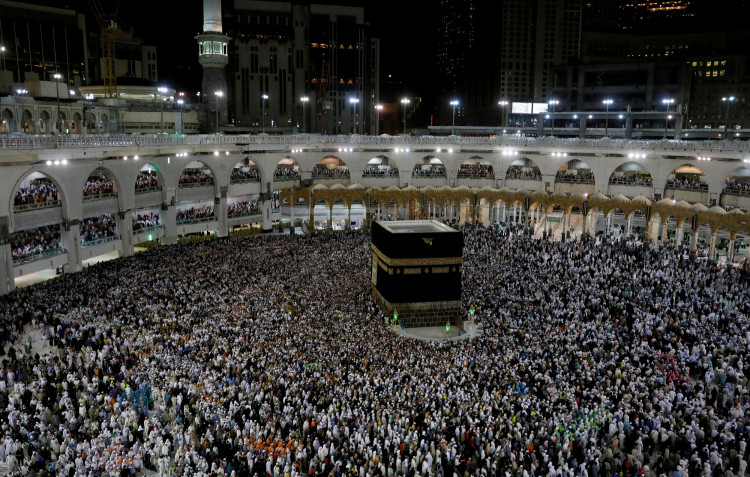Mecca, the holiest city in Islam, has been overrun by white-robed worshipers from all over the world as it gets ready to welcome the largest Haj pilgrimage since the coronavirus outbreak.
Armed security officers patrolled the historic city, where the Prophet Mohammed was born, as welcome banners adorned squares and alleyways for the faithful, including the first foreign visitors since 2019.
Before the ceremony, which is anticipated to begin on Wednesday, Sudanese pilgrim Abdel Qader Kheder told AFP in Mecca, "This is pure joy. I almost can't believe I am here. I am enjoying every moment."
After two years of dramatically reduced attendance due to the pandemic, one million people, including 850,000 foreigners, are permitted at this year's Hajj, a central act of Islam that all able-bodied Muslims are obligated to perform at least once.
The officials reported on Sunday that at least 650,000 foreign pilgrims have arrived in Saudi Arabia thus far.
Around 2.5 million people participated in the rites in 2019, which include circumambulating the Kaaba, the massive black cube inside the Grand Mosque in Mecca, congregating at Mount Arafat, and "stoning the devil" in Mina.
To prevent the Hajj from becoming a super-spreader on a worldwide scale, foreigners were banned the following year and the number of worshippers was limited to just 10,000, increasing to 60,000 completely immunized Saudi natives and residents in 2021.
Under stringent hygienic conditions, including ten times daily cleaning and disinfection of the Grand Mosque, Islam's holiest site, one million immunized pilgrims under the age of 65 will perform the Hajj.
According to the official toll, the ceremonies have been the scene of countless calamities, including a 2015 stampede that may have killed up to 2,300 people and a 1979 onslaught by hundreds of shooters that claimed 153 lives.
One of Islam's five pillars, the pilgrimage, provides the conservative desert kingdom and its de facto ruler, Crown Prince Mohammed bin Salman, who is returning from the diplomatic wilderness, with a significant boost in reputation.
Along with other religious journeys, the Haj, which costs at least US$5,000 per person, generates roughly US$12 billion annually for the largest oil exporter in the world.
Additionally, it is an opportunity to highlight a nation that is rapidly modernizing but yet receives frequent complaints about violations of personal liberties and human rights.
Saudi Arabia, which recently liberalized its laws to allow for mixed-gender beaches in Jeddah and raves in Riyadh, now permits women to perform the Hajj alone after removing the restriction last year.





